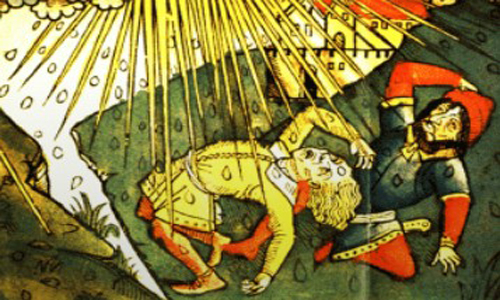Your cart is currently empty!

Consequences of a Violated Relationship
Traditionally, Leviticus 16, which deals with the proper protocol for the High Priest during the special Yom Kippur service, is read in the synagogue on the morning of Yom Kippur. The Torah introduces the Yom Kippur service immediately following the death of Aaron’s two sons, Nadav and Avihu. This demonstrates that there is a direct connection between this tragedy and the instructions of Yom Kippur described in our Torah portion.
According to the Sages, part of the transgression committed by Aaron’s two sons is that not only did they offer improper offerings, but they entered into the Holy of Holies, which only the Kohen HaGadol (the High Priest) is allowed to do. Rabbi Eleazar ben Azariah (First Century) comments that either sin would have been enough to warrant their death. As a result, the entire rest of the chapter deals with the proper protocol of Yom Kippur and the order for the High Priest to enter into the Holy of Holies.
It is taught that Moses’ long process for seeking forgiveness on behalf of the Jewish people for the sin of the Golden Calf ended on the tenth day of Tishrei (Yom Kippur) when he returned with the second set of tablets. That day became associated with forgiveness.
The rest of our Torah portion goes on to describe the Yom Kippur sacrifices and proper sexual relationships.
Often we might not think that God cares that much about protocol and how we live our lives. It seems Nadav and Avihu took this for granted as well. The problem with Nadav and Avihu is they knowingly and intentionally violated the mitzvot God clearly commanded them to obey.
I don’t believe HaShem is out to “zap” everyone the moment they stray. Instead, throughout our Scriptures we often see a loving and merciful God who is always willing to offer second (and more!) opportunities to do teshuva, and re-orient ourselves spiritually. But as with being a parent or a spouse, or in other types of relationships, there are certain lines one does not cross without severe repercussions – adultery, lying, stealing, cheating. It seems that we too have certain protocols and commitments we expect one to follow in certain types of relationships.
The same with HaShem. Nadav and Avihu violated their intimate relationships with HaShem. As priests who were consecrated to serve and devote themselves wholly to God, they took advantage of that relationship. It seems, based on the following commandments of our Torah portion, they may have even violated other intimate relationships as well.
Source: Yinon
